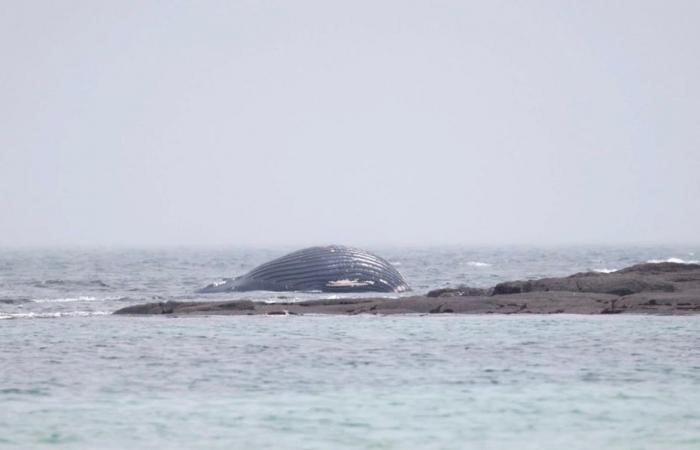A whale ran aground near the Pointe de Saire in Réville, in the Manche, on Sunday November 10 in the morning. Taken up by the waters, it is currently drifting near the coast, closely monitored by state services.
The essentials of the day: our exclusive selection
Every day, our editorial team reserves the best regional news for you. A selection just for you, to stay in touch with your regions.
France Télévisions uses your email address to send you the newsletter “Today’s essentials: our exclusive selection”. You can unsubscribe at any time via the link at the bottom of this newsletter. Our privacy policy
A whale carcass washed up on the morning of Sunday, November 10, on the coast of the English Channel near Pointe de Saire, in Réville (Manche), informs the Cotentin cetacean study group (GECC). The Pelagis Observatory, which coordinates the National Stranding Network, the main tool for monitoring marine mammal strandings in France, confirms the information.
The animal, lifeless, is a “humpback whale“, announces Gérard Mauger, the president of the GECC. After hitting the coast, it was taken back by the waters, he explains. “It's floating for now, it's drifting gently, it's being tracked in real time“, adds Gérard Mauger. According to him, the carcass presents the risk of affecting and damaging the oyster farms on the Manche coast.
The carcass of the marine mammal is currently located in an area “not easily accessible“, but with “of the world around: boaters, people on the page“, further informs the Pelagis Observatory.
A review of the situation is underway, says Pelagis, and a meeting with prefecture staff is planned for this Sunday to determine the interventions to be carried out. “A person authorized to intervene will go to the scene as quickly as possible to examine the animal.“, confirms the GECC, which also indicates: “Stay away and do not touch the animal to avoid any risk of disease transmission.“.
If the carcass does not sail away with the current, it should be “removal from the public domain so that it is not a danger to navigation“, announces Pelagis. The body of the whale could then be rtowed or cut on site, explains Gérard Mauger, of the GECC.






